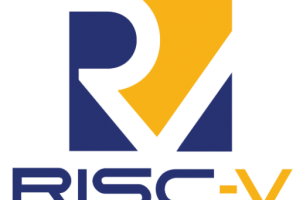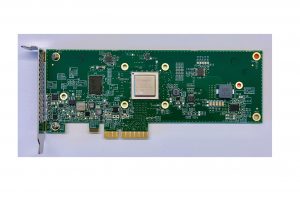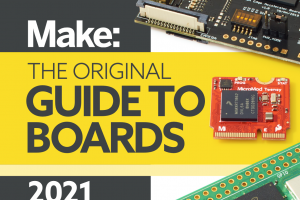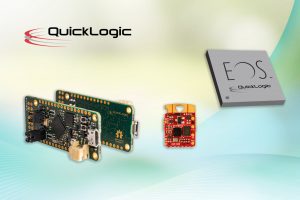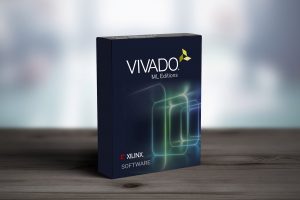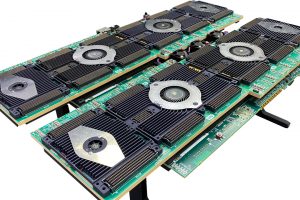Working with FPGAs allows architects and designers to deliver end-to-end security without sacrificing efficiency for telecom innovations, says Bob O’Donnell of TECHnalysis Research. Telecommunication vendors are in the middle of two technological revolutions that are driving the industry forward – the evolution of 5G networks and the transition to open radio access network (oran) architectures. Network architects are no longer ...
FPGA / PLD
The latest Electronics Weekly product news on FPGA (field-programmable gate array) and PLD (programmable logic device) devices to be (re)configured by a user after manufacturing.
Digi-Key to host RVfpga Webinar on RISC-V architecture and implementation
Digi-Key has announced it will host a RVfpga webinar, in collaboration with Imagination Technologies, on the topic of understanding RISC-V architecture and implementation on an FPGA. Running on Wednesday 23 February, at 2 p.m. CST, it will be presented by Dr. Sarah Harris, associate professor of electrical and computer engineering at the University of Nevada, Las Vegas. Specifically, the webinar ...
Edge inference accelerator has an eye on Megapixel vision systems
An edge inference accelerator developed by Flexlogix has a 4k MAC dynamic tensor processor array and is optimised for Mpixel image processing models in medical, surveillance and IoT applications. The InferX X1 edge inference accelerator is designed for processing real-time Mpixel vision workloads which requires high bandwidth support for deep learning models which operate with small batch sizes in real ...
eFPGA soft IP provides options for SoC and ASIC designs
At DAC, French embedded FPGA (eFPGA) supplier, Menta, introduced what it claims is the first eFPGA soft IP. It enables designers to perform closure directly at the top level. This is significant for AI, as well as space and defence projects, which rely on low latency, explained Yoan Dupret, Menta’s managing director and CEO. Since 2013, Menta’s technology has ...
FPGA foundation sets up for disruption at DAC
Following its created in April this year, the Open Source FPGA Foundation was at DAC (Design Automation Conference) to advocate for innovation with open source tools and wrestle control from what has been a largely unchanged FPGA space for 30 years. The fledging non-profit foundation has over 20 members from academia and more than 1,000 individual members worldwide, said CEO, ...
Digi-Key Makes AR app to support 2021 Boards Guide
Digi-Key Electronics has partnered with Make – the publishers behind the maker magazines and books – to release an augmented reality (AR) app to accompany its 2021 Boards Guide. Divided into sections for microcontroller (MCU), single-board controller (SBC) and field programmable gate array (FPGA)-based boards, the guide helps students, makers and professional engineers navigate the latest technology for their possible ...
Digi-Key Marketplace adds QuickLogic FPGA technology
Digi-Key Electronics and the FPGA and embedded FPGA IP company QuickLogic are partnering to sell IoT and AI technology through the DigiKey Marketplace. Specifically, the agreement covers QuickLogic’s low power, multi-core MCU, FPGAs and embedded FPGAs, voice and sensor processing products. For example, included are the EOS S3 MCU Sensor Processing Platform, EOS S3-AI, EOS S3 Voice + Sensor Hub, ...
Xilinx adds machine learning optimisation to Vivado to accelerate design cycle
Claiming to be able to reduce design compile times by a factor of five, Xilinx has launched the Vivado ML Editions tool suite. The latest addition to the company’s Vivado tool suite is believed to be the first FPGA EDA tool suite based on machine learning (ML) optimisation algorithms. In addition to faster compile times, it is claimed to deliver ...
Siemens Digital buys proFPGA prototyping technologies
Siemens Digital Industries Software has bought the proFPGA desktop prototyping technologies product suite from Pro Design Electronic. proFPGA technology is already part of Siemens’ Xcelerstor portfolio as part of its EDA IC verification products. Bringing the proFPGA technology and team in-house can allow Siemens to more fully integrate and optimize the scalable, high-performance prototyping platform for lab and desktop environments ...
Compiler uses C code to write once and accelerate CPUs
Support for multi-threading acceleration for CPUs with multiple physical cores is provided by the CacheQ Compiler which takes a single-threaded C code and generates executable that can run on CPUs, accelerating executing by 486% on x86 processors with 12 cores, reports CacheQ Systems (based on benchmarks from the Black Scholes financial algorithm). There is no need for manual code rewriting, threading ...
 Electronics Weekly Electronics Design & Components Tech News
Electronics Weekly Electronics Design & Components Tech News

